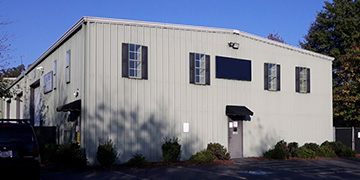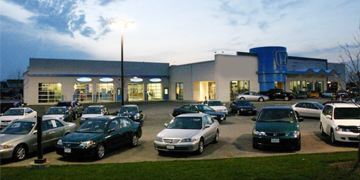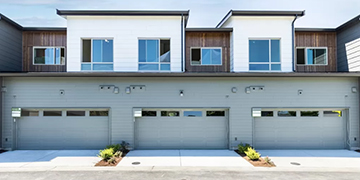Commercial Lending
Buy or Refinance a Commercial Property!
We make it simple to find the right commercial loan.

THOUSANDS of Loan Products.
HUNDREDS of Lenders.
ONE Commercial Lending Platform.
Finding the right mortgage for your commercial property doesn’t have to be complicated or time consuming. We have access to hundreds of lenders and thousands of loan program options, meaning there is likely the perfect fit for your scenario.
Get a quote today and take the first step towards buying or refinancing!
Get a Quote in 3 Simple Steps
1) Provide Your Details
Click the Get My Quote button below to tell us about your commercial lending goals.
2) Connect with Us
One of our Loan Officers will reach out to discuss your specific financing needs soon, and guide you through the loan process.
3) Get Options Quickly
Prequalify in minutes, and receive an outline of commercial loan options to consider.
Why WeDoLoans?
$2 BILLION+ Loans Processed
750+ Commercial Lenders Available
100K+ Loan Programs Available
Lenders Who Trust WeDoLoans
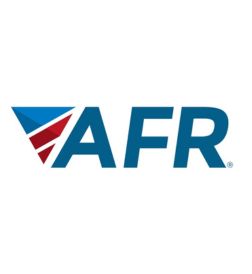

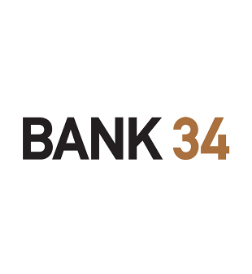
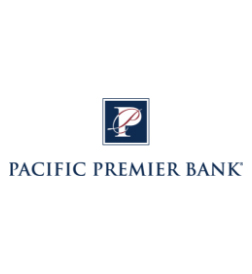
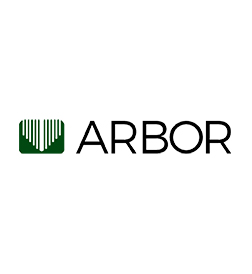
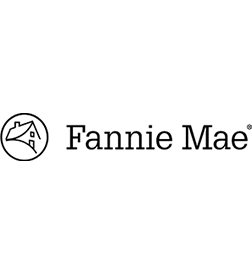

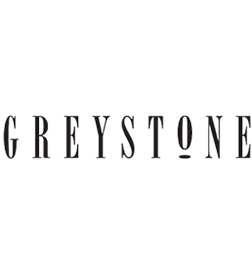






Recently Funded
Check out a sample of our recently funded commercial loans.
Today’s Commercial Mortgage Rates
About our Mortgage Rate Table
Shown Rates are calculated as an average of participating lenders available rates within our network. The rates are provided for comparison purposes only. Actual rates are dependent on property and sponsor.
Commercial Mortgage Calculator
About our Commercial Mortgage Calculator
Use our free commercial real estate loan calculator to calculate the details of a commercial mortgage easily and quickly. Based on the data you input, the Commercial loan calculator will help you calculate your estimated monthly Principal and Interest (P&I) payment for the loan and an Interest Only payment and Balloon payment.
Get Peace of Mind with the Right Commercial Mortgage Loan
Bank
Conventional bank and credit union loan programs represent the predominant form of commercial real estate financing. They cater to a wide range of investment property types and boast significant flexibility, making them highly appealing to investors.
CMBS

Commercial mortgage-backed securities (CMBS) loans stand as prevalent methods for financing commercial real estate endeavors in the United States. They are readily accessible for various types of commercial properties and offer distinct advantages compared to alternative commercial property loan options.
Termed “conduit loans” due to their resale process as securities, CMBS loans are frequently bundled and sold to investors as fixed-income assets. Consequently, these loans are essentially repackaged as bonds, affording commercial property owners indirect access to capital from bond investors.
Bridge

Commercial bridge loans serve as a popular short-term financing option extensively utilized in the real estate sector. Employed by house flippers, real estate developers, and investors, these loans act as a transitional tool to bridge financial gaps during the acquisition or renovation of various properties. Additionally, entities across diverse industries may opt for commercial real estate bridge loans when procuring new properties.
These loans fall under the category of “hard money loans” as they are backed by tangible assets, namely real estate. Due to their brief durations, they are occasionally known as “swing financing” or “gap financing” within the real estate realm.
SBA 504

SBA 504 loans facilitate business expansion and job creation by providing small businesses with a means of obtaining affordable financing. Under the 504 loan program, small businesses can access long-term, fixed-rate financing to enhance or modernize their operations.
Certified Development Companies (CDCs), non-profit organizations collaborating with the SBA and participating lenders, extend financing to small businesses. These CDCs are regulated and certified by the SBA.
SBA 7(a)

The SBA 7(a) loan program represents the principal method through which the Small Business Administration aids small businesses in obtaining financing. These loans, frequently guaranteed by the administration, constitute the most prevalent type of loans it backs, with tens of thousands being guaranteed annually. Although businesses must meet rigorous criteria for eligibility, numerous small businesses, including many in the real estate sector, qualify for SBA 7(a) loans.
Fannie Mae

For investors in commercial real estate, Fannie Mae Multifamily loans present a viable option for accessing lower-cost financing. It stands as one of the primary sources of capital in the U.S. market. Engaging with the Fannie Mae lending platform enables individuals to acquire and refinance multifamily properties, encompassing senior housing, student housing, apartments with five or more units, and various other formats.
Freddie Mac
Life Insurance

Numerous life insurance companies participate in underwriting commercial real estate loans, either independently or in collaboration with other insurers. The primary objective of these loans is to generate returns for the life insurance company while substantially reducing their risk exposure through diversification. This risk mitigation factor influences virtually every aspect of these loans.
If you seek a long-term and low-rate commercial real estate loan, a life insurance company could offer suitable financing for your project.
Commercial Loan FAQ’s
Frequently Asked Questions

What is a commercial mortgage?
Commercial real estate loans provide financing for investment properties. Loans are available for multifamily residential, commercial (e.g. office, retail), industrial (e.g. manufacturing, distribution), and other investment properties.
These loan products can be used to acquire new properties, renovate income-producing properties, improve properties, restructure existing debt, or for other purposes.
How do commercial mortgages work?
Lenders evaluate properties and investors on a case-by-case basis to determine whether the lender is able to extend the requested commercial property financing.
The criteria that lenders consider are largely specific to investment properties, but the process of submitting an application, going through underwriting, and hopefully securing financing is much like any other loan process. The requested information and loan features are simply different than residential lending.
What is the difference between residential and commercial?
Commercial real estate loans work much like personal residential loans in principle, but there are substantial differences in the loan amount, loan features, repayment schedule, and evaluated criteria.
Whereas a personal mortgage normally requires certain income and employment history, a commercial property loan weighs recurring revenue and some other business-related factors heavily. Calculations such as DSCR, cap rate, and NOI are much more common. So too are non-recourse, personal guaranty, and similar clauses.
The common 30-year fixed-rate mortgage is still available for commercial property, but it’s used much less frequently. Borrowers more often get shorter-term loans that may have longer amortization schedules, balloon payments, prepayment penalties, and other features that are infrequently found in residential mortgages.
Individuals vs. Entities
A large difference between residential loans and commercial real estate loans is simply who the borrower is. Commercial property loans aren’t offered to individuals, but rather limited liability corporations, limited liability partnerships, general partnerships, S corporations, and C corporations.
Although individuals might technically secure financing for a small investment property (e.g. duplex) as a sole proprietor, this generally isn’t recommended and usually isn’t considered a true commercial property loan. Commercial property financing is usually for LLCs, LLPs, GPs, S Corps, and C Corps that have larger properties (e.g. minimum 5-unit multifamilies, offices, stores, etc.).
What type of interest rates are available for Commercial Mortgages?
Commercial real estate loans can come with floating (variable) interest rates, fixed interest rates, or floating-to-fixed rates. Floating rates change over the course of a loan as market rates adjust, often changing once per year. Fixed rates are set for the duration of the loan.
Lenders consider the property, borrower, market rates, and other factors when setting interest rates. Government-backed loan programs sometimes have slightly lower interest rates.
When calculating repayment, the interest rate is applied to the full amortization schedule rather than only the loan term.
Commercial Loan Calculator
Since a loan’s repayment schedule is impacted by the loan’s term, amortization, balance, interest rate structure, and interest rate, manually calculating repayment is cumbersome. A loan calculator makes it easy to see how repayment changes as the interest rate and other factors change, though.
Importantly, investors should use a commercial loan calculator rather than a residential mortgage calculator. Residential mortgage calculators won’t adequately account for the various factors that affect commercial loan repayment schedules.
What are the specific terms I should know when I apply?
The requirements and features of commercial real estate loans are somewhat particular to this category of loan. Here are the specific terms to know when applying for this type of funding.
Repayment Schedule
Commercial real estate loan repayment schedules are based on term and amortization, and these frequently are different durations. The term is how long regular payments will be made. The amortization is the duration that’s used to calculate those regular payments.
For example, a commercial property loan might have a 10-year term and 30-year amortization. The regular payments (usually monthly) would be calculated as if the loan would take 30 years to pay off. The payments would only be made for 10 years, at which time a large payment would be required to clear the remaining balance of the loan.
Because term is often shorter than amortization, balloon payments are common with commercial property loans. Investors frequently manage balloon payments by refinancing or selling, but simply paying them is, of course, acceptable.
Loan-to-value
Loan-to-value ratios measure the balance of a commercial property loan against the value of a financed property. Loan programs have maximum allowed LTVs so that lenders don’t assume too much risk.
Loan-to-value is calculated as follows: LTV = Loan Balance / Property Value
A maximum allowed LTV of 80% is common, but some programs have different allowed maximums. Non-guaranteed programs might have lower LTV requirements. Guaranteed programs might have slightly higher LTV allowances.
Debt-Service Coverage (DSCR)
Debt-service coverage ratios measure a property’s income against the property’s debt. Lenders use DSCR to evaluate whether a property has enough income to service its monthly debt payments.
Debt-service coverage ratio is calculated as follows: DSCR = NOI / Debt Service
Net operating income encompasses a property’s revenues less its operating expenses. Debt service encompasses the interest payments and principal repaying, often of all loans on the property.
Prepayment Penalty
Prepayment penalties are charged when a commercial property loan is fully paid before the maturation date. Lenders use prepayment penalties to ensure at least a portion of their expected return on a loan. Penalties are common on most types of commercial real estate loans.
Prepayment penalties can be structured a number of different ways:
Lockout Period: Doesn’t allow early repayment for the duration of the period
Fixed Fee: Assesses a fixed percentage fee if fully repaid early
Step Down: Assesses a percentage fee that decreases with time
Yield Maintenance: Assesses a fee based on the expected interest a lender loses
Defeasance: Assesses a fee in the form of government-based securities
Cap Rate
Cap rates measure the expected annual return that a property should generate. The rate represents the annual expected return that an all-cash investment would yield. Lenders use the rate to evaluate the financial health of an investment property.
Cap rate is calculated as follows: NOI / Property Value
Net Operating Income
Net operating income encompasses a property’s revenues less its operating expenses.
Net operating income is calculated as follows: RR – OE
Recurring revenue can stem from rental income, parking fees, service charges, vending machines, or any other regularly recurring form of revenue.
Operating expenses encompass repairs, maintenance, taxes, insurance, utilities, management fees, and other recurring expenses that are necessary to operate a property. Improvements aren’t part of operating expenses.
Loan-to-cost (LTC)
Loan to cost ratios measure the cost of financing a property against the cost of building it. The ratio is specific to construction, and not used for acquisition or refinancing. Lenders consider LTC when calculating the amount of equity that must be retained during construction.
LTC is calculated as follows: LTC = Loan Amount / Construction Cost
What Documents will I need when I apply?
Preparing for a commercial real estate loan requires having documents about both the property and your business in order.
You should have property value, revenue, construction costs (if building or renovating), tenant (if multifamily), and other relevant information available. While you ought to calculate LTV, DSCR, cap rate, and other ratios yourself, a lender will likely review each of these with you. You’ll also need any information that’s necessary to show a property qualifies for a specific program.
You should also have business data ready. Be prepared with ownership, portfolio, revenue, expense, and other relevant information. Lenders will consider your application in light of your business’s past performance, current portfolio, cash flow, credit, and other factors.
Types of Properties We Finance
Retail
- Factory Outlet
- Mall Regional and Super Regional
- Neighborhood Center
- Grocery
- Power Center
- Retail Shadow Anchored
- Retail Single Tenant
- Unanchored Retail Strip
Multifamily
- Apartment Building CO-OP
- Apartment Building Condo
- Apartment Building Garden
- Apartment Building Mid-High
- Rise Apartment Building Townhomes
- Mixed Use Senior House / 55+ Community
- Special Use Military
- Special Use Student
Hotel
- Flagged / Unflagged Conversion
- Flagged / Unflagged Full Service
- Flagged / Unflagged Limited Service
- Flagged / Unflagged Suite / Extended Stay
Healthcare
- Assisted Living Facility
- Hospital
- Inpatient Facility
- Outpatient Facility
- Skilled Nursing (Memory Care)
Industrial
- Flex Space / R&D
- Manufacturing Heavy Industrial
- Manufacturing Light Industrial
- Warehouse Bulk District
- Warehouse Cold District
Office
- CMD Central Business District
- Medical Office
- Mixed Use (Office / Retail)
- Office Single Tenant
- Suburban Garden Office
- Suburban High Rise
Special Use
- Auto Body / Service & Repair
- Auto Dealership
- Bars / Nightclubs
- Bowling Alley
- Business Expansion
- Car Wash
- Daycare Facility
- Restaurant
- Funeral Home
- Gas Station
- Golf Course
- Marina
- Movie Theater
- Single Family Home Portfolio
- Self Storage
- Short-Term Rental
- Mobile Parks

With 22+ Years of Experience, We Help You:
Purchase or refinance a commercial property, & be on your way to meeting your business or financial goals
Keep the process simple, streamlined, and low-stress
Find the right commercial mortgage loan so you save money
Our Blog
We’ve Been Making Mortgage Loans for 22+ Years
Knowledge is power. Our blog helps you learn how to avoid the common mistakes that cost you frustration, lost time, and thousands of dollars.
How to Calculate Effective Gross Income in Commercial Real Estate
Estimating a commercial property’s potential income involves more than simply multiplying the monthly rent by twelve. This basic calculation overlooks additional income streams and potential costs, making it an incomplete reflection of the property’s true revenue...
Commercial Cash-Out Refinance: What It Is and How It Works
A commercial cash-out refinance allows property investors to access the equity tied up in their real estate, which would otherwise remain illiquid. While selling the property is one way to unlock equity, refinancing offers an alternative with several potential...
Vacancy Rate Calculator: How to Determine Vacancy Rates in Real Estate
When evaluating investment properties, understanding vacancy rates is essential. This metric reveals how frequently units remain unoccupied and for how long. It also offers insight into the property's management efficiency and overall desirability. For those...
Testimonials
Our Customers Love WeDoLoans!
I have had several loans before this one and can confidently say this was the easiest experience I have ever had. The process is smooth, most of it automated, and all of it easy. Thank you WeDoLoans!
– Kevin Clark


WeDoLoans makes the process simple and keeps all parties involved up to date. I also love that WeDoLoans is always looking for ways to support my business!
– Melissa Williamson, Realtor

